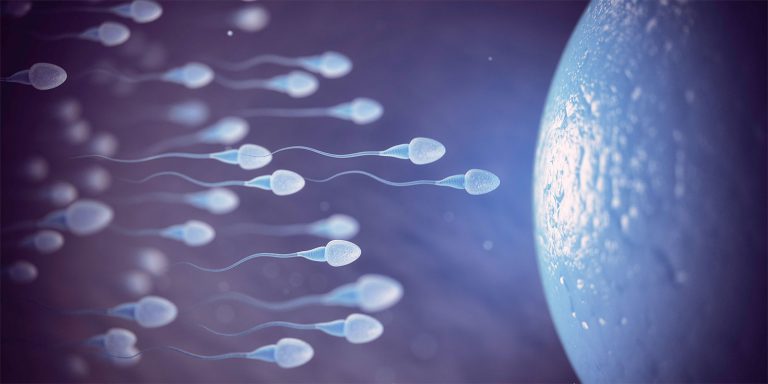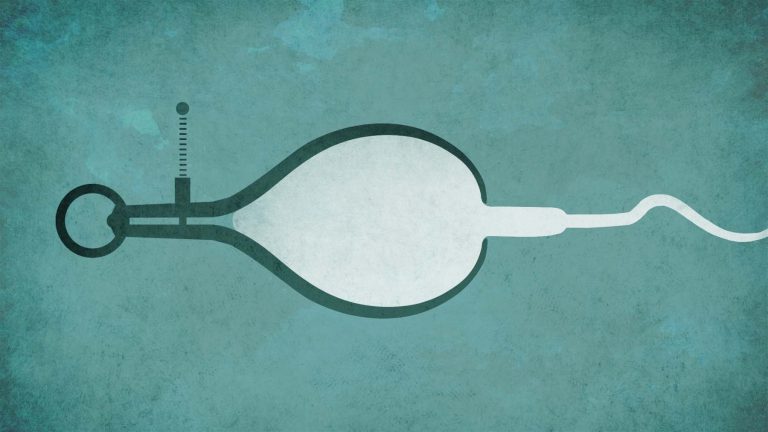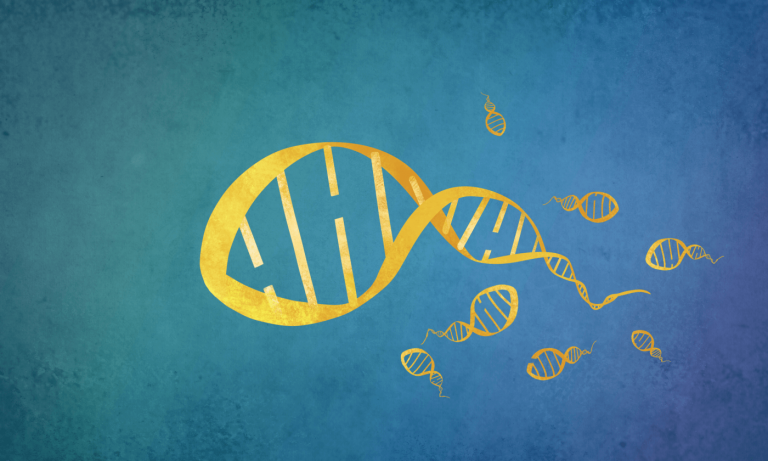Azoospermia is the complete absence of any sperm in a man’s semen. It is found in 5-10% of men who seek infertility treatment. Consequently, azoospermia is a major cause of male infertility.
Normally, a male’s testicles produce sperm which join with fluid produced by other parts of his reproductive system to become semen. If a man has azoospermia, he may still produce seemingly normal semen, but it will not contain any sperm.
Azoospermia Causes
There are two causes of azoospermia: either sperm is being blocked from exiting the testicles (obstructive azoospermia), or sperm is simply not being produced at all (non-obstructive azoospermia).
Obstructive Azoospermia
Sperm could be blocked from exiting the testicles in a variety of spots. The part of the testicle where sperm mature(epididymis), the tube that transports sperm from the testicle to the urethra(the vas deferens), and the openings on each side of the tube (the ejaculatory duct) are all potential sources of blockage, via injury, infection, prior surgeries, or genetic defects.
Non-Obstructive Azoospermia
If the sperm isn’t being blocked, that means it isn’t being produced, or in some cases it may be produced at such low levels it isn’t making into a man’s ejaculate. This would be called severe oligospermia, and while it is still quite serious, sperm retrival and assisted reproductive technology could still make pregnancy a possibility.
Some potential causes include
– genetic mutations
– Y-chromosome deletions
– radiation (including cancer treatment)
– heavy metal exposure
– the use of certain medications or illegal drugs
– hormone imbalances
– varicoceles (enlarged veins).
Azoospermia Treatment
If sperm is being blocked from exiting the testicles, “obstructive azoospermia”, then surgery under general anesthesia is often an effective treatment that can restore the flow of sperm. If you have non-obstructive azoospermia, treatment could be trickier depending on the cause, however, there are minimally invasive surgeries to extract sperm. One such method that optimizes sperm retrieval for non-obstructive azoospermia patients is a technique called sperm “FNA Mapping” and was invented by fertility expert Dr. Paul Turek. FNA mapping is known as the “GPS of the testicle“, allowing the physician to pinpoint specific areas in the testicle with the highest levels of sperm. By mapping areas in the testicle with the highest levels of sperm, physicians can maximize the chances that they will successfully extract sperm using a surgery called “microscopic testicular sperm extraction” (mTESE). Combining sperm FNA mapping with mTESE is the ideal approach for non-obstructive azoospermic patients who want a minimally invasive sperm extraction procedure with very little risk, pain and recovery time.
In the cases where lifestyle factors are at issue, such as medication usage or hormone imbalances, treatment can be as simple as switching medications or addressing hormone problems. Varicoceles can be treated using a low-risk surgery called varicocelectomy.
However, in cases of genetic mutations or other things that are not easily treatable, sperm donation may be the most viable option for couples who wish to conceive a child. As mentioned before, for some men with azoospermia there is sperm in their testes, but even if you successfully go through a sperm retrevial, there is a significant chance that there will be no useable sperm for ICSI. By some reports there is a failure to obtain sperm in up to 50% of men with nonobstructive azoospermia.
If you believe you are struggling with male infertility, talk to a fertility specialist or a urologist. They will generally perform two semen analyses before diagnosing any problems like azoospermia and then further testing may be necessary to determine a cause.







